Yonhap News
2010/02/04 09:01 KST
Extra U.S. troops not likely to arrive in time in case of N.K. crisis: Gates
By Hwang Doo-hyong
WASHINGTON, Feb. 3 (Yonhap) -- Additional U.S. ground forces may not be able to arrive in South Korea in time in case of an emergency situation in North Korea due to America's heavy commitment in Iraq and Afghanistan, senior U.S. officials said Wednesday.
"We could not get the Army units required for South Korea into South Korea on the time line required by the plan," Secretary of Defense Robert Gates told a hearing of the House Armed Services Committee. "That's not to say they wouldn't get there. It's just that they wouldn't get there as quickly because of the commitments that we have in Iraq and Afghanistan. And so certainly initially we would be especially dependent on the Navy and the Air Force."
The United States, however, will be able to send extra ground troops to Korea in time after the completion of the proposed drawdown of U.S. troops in Iraq in 2011, Michael Mullen, chairman of the Joint Chiefs of Staff, said.
"I would only add that, as you look at the time line that you just described -- end of '11, Army's out of -- we're out of Iraq -- it's the beginning of reset, really, for the Army in terms of equipment and actually training," Mullen said. "Ideally, probably a year or two before we're well into that, to be able to do it ... on a time line we choose."
Mullen was responding to a question from Rep. Joe Sestak (D-Pa), saying that if the U.S. "could not meet our warfare commitments with the Army for, like, (Operational Plan) 5027 in South Korea, but that the Air Force and the Navy and the others could back that up with acceptable risk."
North Korea recently warned of a "sacred war" against South Korea over reports that Seoul had come up with a new Operational Plan (OPLAN) 5029 in case of regime change or any other contingencies in the nuclear-armed communist state.
Talk of such contingency plans abounded last year amid rumors of a power transition to North Korean leader Kim Jong-il's third and youngest son Jong-un, 27, after the senior Kim apparently suffered a stroke in the summer of 2008.
Secretary of State Hillary Clinton and other senior U.S. officials have publicly discussed contingency plans for the North, but China, Pyongyang's biggest benefactor, has refused to talk openly with the U.S. about its contingency plans for North Korea in order not to provoke its communist ally.
A report issued by the Council on Foreign Relations last year said that South Korea, the United States and their allies would need to send up to 460,000 troops -- three times more than the number of U.S. troops deployed in Iraq -- to help maintain stability in North Korea in case of its collapse.
The report noted that securing North Korea's weapons of mass destruction, including nuclear warheads, chemical and biological weapons and long range missiles, should be a top priority.
"Locating, safeguarding, and disposing of materials and stockpiles of the North's estimated six to eight nuclear weapons, four thousand tons of chemical weapons, and any biological weapons, as well as its ballistic missile program, would be a high priority, especially for the United States," it said.
North Korea detonated its second nuclear device in May last year, after an earlier test in 2006, and is believed to possess ballistic missiles capable of reaching western parts of the mainland U.S.
The report also stressed the need for the U.S. to seek "a quiet dialogue" with China "to reduce the risk of misunderstanding and friction in a crisis involving North Korea."
hdh@yna.co.kr
Thursday, February 4, 2010
Text Fwd: Extra U.S. troops not likely to arrive in time in case of N.K. crisis: Gates
Subscribe to:
Post Comments (Atom)

![[URGENT PLEA: In Update] EMERGENCY in GANGJEONG Since AUG. 24, 2011](http://2.bp.blogspot.com/-3iz8k-USXVY/TlmRYhhIYtI/AAAAAAAAL2c/9dbF85ZIkIs/s227/jejusit.jpg)
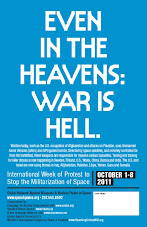
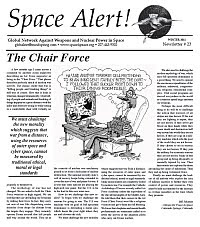

![[Solidarity from Japan for the Jeju] 253 individuals and 16 groups/organizations](http://2.bp.blogspot.com/_gnM5QlRx-4c/TR_YeNVE1yI/AAAAAAAAHWQ/ARyf6oQN0S0/S227/jeju_12_10j.jpg)
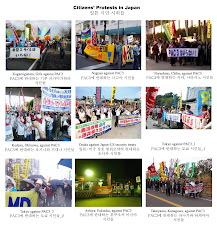
![[Translation] Korean organizations' statement: Immediately cancel the joint ROK-US drill Nov 26](http://2.bp.blogspot.com/_gnM5QlRx-4c/TPOE8VKXHFI/AAAAAAAAGlM/8lryt-8sFjc/S227/1.jpg)
![HOT! [Hankyoreh Hani TV] Beneath the Surface: the investigation into the sinking of the Cheonan](http://4.bp.blogspot.com/_gnM5QlRx-4c/TOI83qht8aI/AAAAAAAAGXU/22SW6Q5ntV8/S227/HaniTV%2BCheonan.gif)

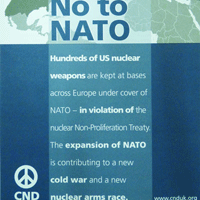

![[Translation]Statement against illegal inspection and unjust lay-off by the Kunsan USAFK!(Nov_2010)](http://4.bp.blogspot.com/_gnM5QlRx-4c/TOPLsVkZMqI/AAAAAAAAGZs/3YnnckIyAaY/S227/gunsan%2Bprotest.gif)
![[Translation] Korean organizations' statement against dispatching special force to the UAE on Nov.](http://4.bp.blogspot.com/_gnM5QlRx-4c/TOP95zHXlCI/AAAAAAAAGak/E0Ug1XtUFfM/S227/antiwarpeace.jpg)
![[Translation] Stop, Joining MD!: South Korean activists' statement and writing on Oct. 25, 2010](http://3.bp.blogspot.com/_gnM5QlRx-4c/TOP7Es4_2sI/AAAAAAAAGac/eWVMPD-U4p0/S227/StopMD.jpg)
![[In Update] People First, NO G-20 (Nov. 6 to 12, Korea)](http://2.bp.blogspot.com/_gnM5QlRx-4c/TJd53XBzHlI/AAAAAAAAFQo/ldO9JPE3eqo/S227/left21_G20.jpg)
![[International Petition] Stop US helipad plan in Okinawa to save great nature](http://4.bp.blogspot.com/_gnM5QlRx-4c/TKC2AHRNzBI/AAAAAAAAFUo/yGWXODTw_uM/S227/yanbaru_w.jpg)

![[Global Network] against the first launch of Quasi-Zenith Satellite, Japan, on Sept. 11, 2010](http://4.bp.blogspot.com/_gnM5QlRx-4c/TIowa1boy4I/AAAAAAAAFDI/82rAi98uq-c/S227/Qzss-45-0_09.jpg)

![[In update] Some collections on the Koreans’ protests against the sanction & war on Iran](http://4.bp.blogspot.com/_gnM5QlRx-4c/TJMvke6t8zI/AAAAAAAAFO4/tamQ8LUnOOA/S227/No+Sanction+on+Iran.jpg)
![[Three International Petitions] to End the Korean war and peace treaty(or peace resolution)](http://1.bp.blogspot.com/_gnM5QlRx-4c/THef7bzWxYI/AAAAAAAAE44/wwdzSDfYhdw/S227/border.jpg)
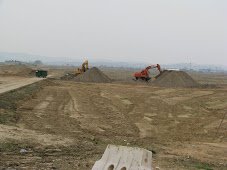


![[Collection of Documents] No Base Learning and Solidarity Program_Korea(June 14 to 20, 2010)](http://1.bp.blogspot.com/_gnM5QlRx-4c/TCTvVuN8NeI/AAAAAAAAEek/8vBJVaHdk10/S227/No-Base-banner.jpg)
![Site Fwd:[John Hines] A U.S. Debate coach’s research trip on the Issues of Korea](http://3.bp.blogspot.com/_gnM5QlRx-4c/TINCO36mzzI/AAAAAAAAE_w/Rds12NcBOXM/S227/Jeju-Peace-Tour.jpg)


![[News Update] Struggle Against the Jeju Naval Base since Jan. 18, 2010](http://1.bp.blogspot.com/_gnM5QlRx-4c/S1vvWaP25uI/AAAAAAAACkg/QvpW1tgOlKM/S226/scrum1.jpg)


![[Urgent] Please spread the Letter!: There was no Explosion! There was no Torpedo! (May 26, 2010)](http://4.bp.blogspot.com/_gnM5QlRx-4c/S_9JmsKEU7I/AAAAAAAAEP8/sAWjSPqxzUI/S227/grounded.jpg)
![Text Fwd: [Stephen Gowans]The sinking of the Cheonan: Another Gulf of Tonkin incident](http://1.bp.blogspot.com/_gnM5QlRx-4c/TAL_FtYKQ-I/AAAAAAAAERE/NEEMijiEcRM/S227/lee-myung-bak.jpg)
![[Japan Focus]Politics in Command: The "International" Investigation into the Sinking of the Cheonan](http://1.bp.blogspot.com/_gnM5QlRx-4c/TBMJ2syJzyI/AAAAAAAAEZU/uTYZccU5vyk/S227/wen_jiabao_and_lee_myungbak.png)
![[Japan Focus] Who Sank the SK Warship Cheonan? A New Stage in the US-Korean War and US-China](http://2.bp.blogspot.com/_gnM5QlRx-4c/S_iQ2vE5ZpI/AAAAAAAAEOU/Oo1SPcAe8FE/S227/buoy_map.gif)
![[Updated on 12/13/10] [Translation Project] Overseas Proofs on the Damages by the Military Bases](http://4.bp.blogspot.com/_gnM5QlRx-4c/S-qSj59gPLI/AAAAAAAAEGM/mwjlFtPE-jo/S227/missile.jpg)
![[International Petition] Close the Bases in Okinawa](http://3.bp.blogspot.com/_gnM5QlRx-4c/S8-z3DYNwNI/AAAAAAAADo4/OswTSchK09M/S227/2.jpg)

![[In Update]Blog Collection: No Korean Troops in Afghanistan](http://4.bp.blogspot.com/_gnM5QlRx-4c/SwnlLD9IewI/AAAAAAAAB9E/oUPssnpNidA/S226/No-Troops-to--Afghanistan.jpg)
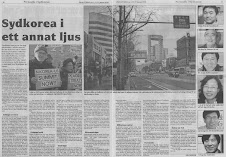

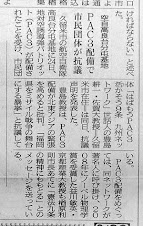

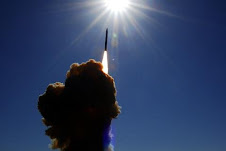



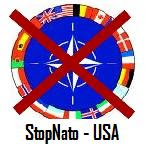


No comments:
Post a Comment